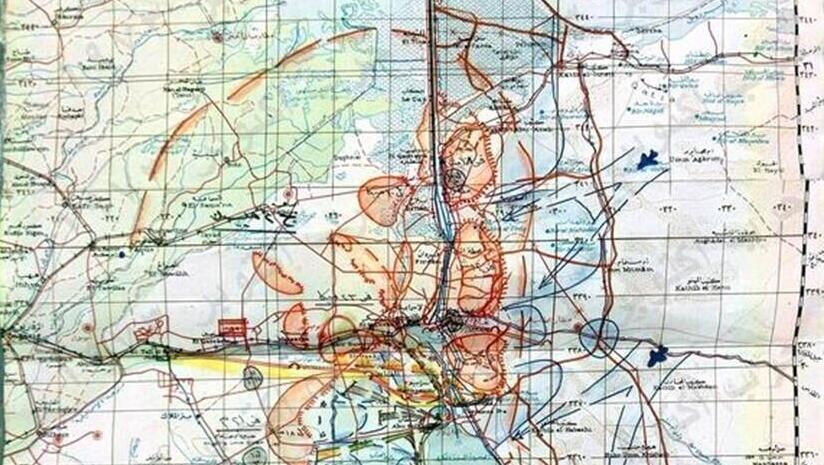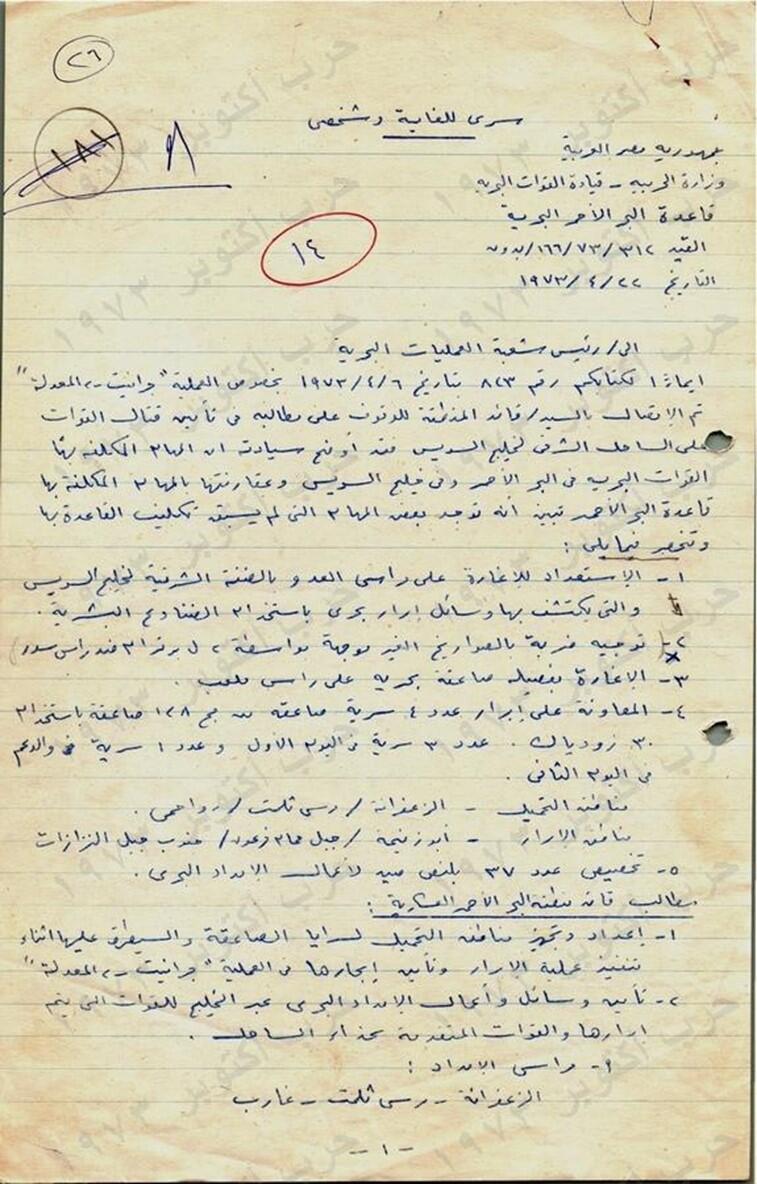Getting your Trinity Audio player ready...
These days, amid the war in the Gaza Strip, the Egyptian Ministry of Defense has released rare documents from the Yom Kippur War under the title "War Documents of October 1973 - Secrets of the War".
Read more:
The documents were divided into several categories, including the strategic military planning of the Yom Kippur War, plans for managing the war through its stages until the cease-fire, documents dealing with Egyptian communication during the war, international bodies and their roles and documents containing various remarks from leaders.
Many of these documents were previously classified as "top secret and personal," but are now open to the public.
The website states that "the Egyptian military's strategic planning for the October 1973 war was at the highest level of global military thought." It included diplomatic and military guidance from the army commander, preparation of force deployment, operational and supplementary plans, organization of strategic cooperation, and review and assessment of the forces' capabilities to execute the planned missions. The years that have passed since the documents were written and the handwriting difficulty may challenge their readability, but the main topics they address are discernible.
In an interview with the Egyptian newspaper Al-Youm Al-Sabea, Ibrahim El-Masri, a member of the Egyptian Parliament's National Defense and Security Committee, addressed the publication of the documents, stating that they affirm the strength of the Egyptian forces and the entire Egyptian people, asserting their victory in history.
He added that the timing of releasing these documents is significant, sending a message to the world that reinforces Abdel Fattah El-Sisi's words: "One who managed the Yom Kippur War can do it once, twice, or thrice." According to him, the Egyptian army today possesses the highest readiness, the most advanced weaponry, and sophisticated operational methods. "The Egyptian army is capable of confronting any front and scenario," he added.
El-Masri claimed that these documents also describe "the behavior and morality of Egyptian officers and soldiers during the October 1973 war with Israeli soldiers, including prisoner exchanges and the honor bestowed upon them." He concluded by expressing his happiness at releasing these documents at this time.
Another member of the Egyptian Parliament, Mohamed Abdel Rahman Radi, also from the National Defense and Security Committee, emphasized the importance of these rare documents and their publication. According to him, it's a message to the world conveying the power and capability of the Egyptian army to confront any threat. It's worth noting that the documents also provide details about the Six-Day War and information about the role of communication in Egypt in both wars.




